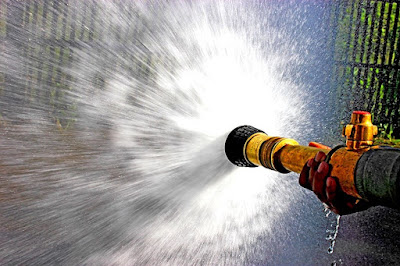How often do you pee?
The number of times you pee is a measure of your health
You may suddenly have an urge to go to the bathroom ahead of an important announcement. Don't you have to go in and out of the bathroom several times during the night when others are sleeping soundly?
The number of times you pee a day can be a measure of your health. If you urinate too often, it is evidence of health problems.
Healthy people urinate 5-6 times a day on average
However, there are people who go to and from the bathroom more than eight times a day. When you are nervous, you often feel confused because you feel the desire to pee. It becomes difficult to hold back urine and leaks out without even realizing it. Some people even urinate often during sleep. All are overactive bladder symptoms.
Such overactive bladder is a continuation of stress. Not only does it degrade the quality of life itself, but if it is accompanied by other diseases, the pain doubles. In particular, it can cause depression in women after menopause. Night frequent urination causes sleep deprivation, causing sleepiness during the day, which greatly interferes with daily life. Women with osteoporosis also increase the possibility of falls and fractures.
The cause of the overactive bladder is not yet clear. Factors that can cause overactive bladder include urinary tract infections, hormone deficiency, drug side effects, excessive water intake and urination, constipation, obesity, mental state changes, men's prostate hypertrophy, and diabetes. In addition, foods that stimulate the bladder include alcoholic beverages, caffeine-containing products (coffee, tea, chocolate, etc.), spicy foods, carbonated drinks, sour fruit juice or fruits, honey, sugar, and artificial sweeteners.
You can prevent overactive bladder to some extent by reducing excessive intake of water or caffeine, smoking cessation, weight control, exercise, and urinating before going out and going to bed. However, if symptoms are suspected, they should be confirmed and treated through consultation with a specialist.
In particular, if you have frequent urination at night, it is recommended to refrain from late-night snacks such as moisture and fruits after 6 p.m. The intake of caffeine-containing coffee or tea, alcohol, and carbonated drinks is also restricted. In addition to quitting drinking and quitting smoking, sex life should be healthy.
You should also pay attention to the time of urination. Like a normal person, he/she urinates every three to four hours and makes a habit of completely urinating even if it takes some time. It is better to train to endure even if there is abnormal desperate urine that is suddenly difficult to endure. After holding back by contracting the sitting position or pelvic muscles, go to the bathroom slowly when the sense of urgency disappears.
Regarding the prevention and treatment of overactive bladder, constipation should be prevented through appropriate moisture and fiber intake, and weight management should be performed through regular general and pelvic contraction exercises. It is also a good idea to create a surrounding environment so that you can sleep well at night, and to write a urine diary to evaluate your urination habits on your own.
On the other hand, is urine and energy related?
The urine stream is often accepted as a "symbol of energy". Is it really relevant?
In old movies, they even showed waterfalls to express "strong energy." In Korea, raspberry is also the name given because the urine stream becomes strong enough to upset the urea when you urinate after eating.
This is partly true medically. When men's urine stream weaken, most of them are caused by prostatic hypertrophy. The prostate is an organ that secretes semen. Prostate hypertrophy can cause problems in the situation. Both urine and semen come out through the urethra, and when the prostate surrounding the urethra becomes enlarged like a donut, urine and semen are not discharged smoothly.
Prostate hypertrophy, which weakens the urine stream, is so common that half of men over the age of 50, and people with prostate hypertrophy often suffer from erectile dysfunction.
In the past, prostatic hypertrophy and erectile dysfunction were thought to be just a process of aging. However, recently, it has been revealed that nerves and blood vessels damaged by disease and aging have a bad effect on both prostate and erectile tissue, which often accompanies prostatic hypertrophy and erectile dysfunction. Prostate hypertrophy can lead to psychological atrophy and sexual desire loss and erectile dysfunction.
The sudden weakening of the urine stream may be an abnormal signal of the prostate, and it may be accompanied by sexual dysfunction such as erectile dysfunction, so it is better to get an accurate diagnosis.









Post a Comment
0 Comments